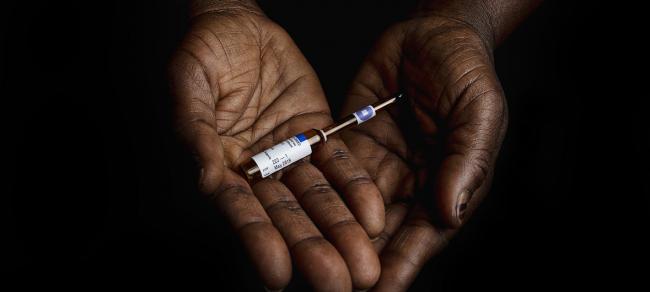
UN tuberculosis summit ‘historic opportunity’ to put response ‘back on track’: new WHO report
New York, Sept 19 (IBNS): Countries are not doing enough to end tuberculosis – the world’s deadliest infectious disease – by 2030, warned the World Health Organization (WHO) on Tuesday, at the release of the latest Global Tuberculosis Report.
The report shows that worldwide, tuberculosis (TB) cases are falling too slowly to meet the targets set by WHO’s End TB Strategy.
The deadly disease, which usually infects the lungs and is transmitted through the air, remains one of the top 10 causes of worldwide deaths, and is the leading cause of death from a single infectious agent, above HIV/AIDS. This is despite the fact that global efforts have averted an estimated 54 million TB deaths since 2000.
The geographical disparity in cases is stark, with 500 cases per 100,000 in some countries including Mozambique, the Philippines and South Africa; and fewer than 10 per 100,000, in high-incomes countries.The report shows that almost a quarter of the world’s population, some 1.3 billion people, are at risk of developing TB during their lifetime, and around 10 million people are estimated to have caught the disease during 2017.
Drug-resistant TB remains a public health crisis, with more than 500,000 believed to have contracted TB resistant to rifampicin, the most effective frontline drug.
The report was launched in the lead up to the first-ever General Assembly high-level meeting on TB at UN Headquarters in New York on 26 September, under the theme “United to end TB: An Urgent Global Response to a Global Epidemic”.
This high-level meeting comes in the wake of the Global Ministerial Conference on Ending TB, which took place in Moscow in November 2017, resulting in high-level commitments from nearly 120 countries to accelerate the response to eradicating TB.
UN chief António Guterres, speaking in June at a preparatory civil society hearing held at United Nations Headquarters, said that, to win the fight against tuberculosis, it is necessary to tackle the “social drivers” of the disease – in particular poverty and inequality – head on, making greater efforts to provide universal health coverage and combat the growing threat of anti-microbial resistance.
“We have never seen such high-level political attention and understanding of what the world needs to do to end TB and drug-resistant TB”, said Dr Tedros Adhanom Ghebrayesus, WHO Director-General. “We must capitalize on this new momentum and act together to end this terrible disease.”
Whilst under-reporting and under-diagnosis are mentioned as major challenges in the fight against TB, the most urgent stumbling block is funding.
In 2018, investments in TB prevention and care in low- and middle-income countries fell $3.5 billion short of what is needed. Without an increase, the funding gap will rise to over $6 billion by 2022.
The report describes the 26 September high-level meeting as a “historic opportunity to put the TB response back on track”.
Doctor Teresa Kasaeva, Director of the WHO’s Global TB Programme, said that “it is unacceptable that millions lose their lives, and many more suffer daily from this preventable and curable disease. We need to join forces to root out this disease that has a devastating social and economic impact on those who are ‘left behind’, whose human rights and dignity are limited, and those who struggle to access care”, she said, adding that: “The time for action is now.”
Support Our Journalism
We cannot do without you.. your contribution supports unbiased journalism
IBNS is not driven by any ism- not wokeism, not racism, not skewed secularism, not hyper right-wing or left liberal ideals, nor by any hardline religious beliefs or hyper nationalism. We want to serve you good old objective news, as they are. We do not judge or preach. We let people decide for themselves. We only try to present factual and well-sourced news.







